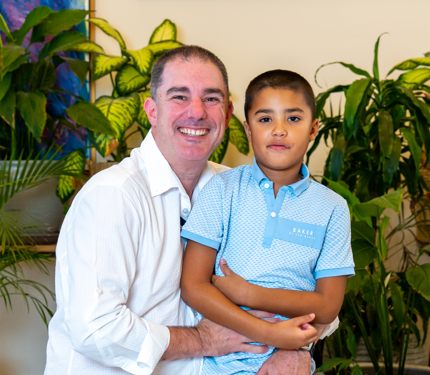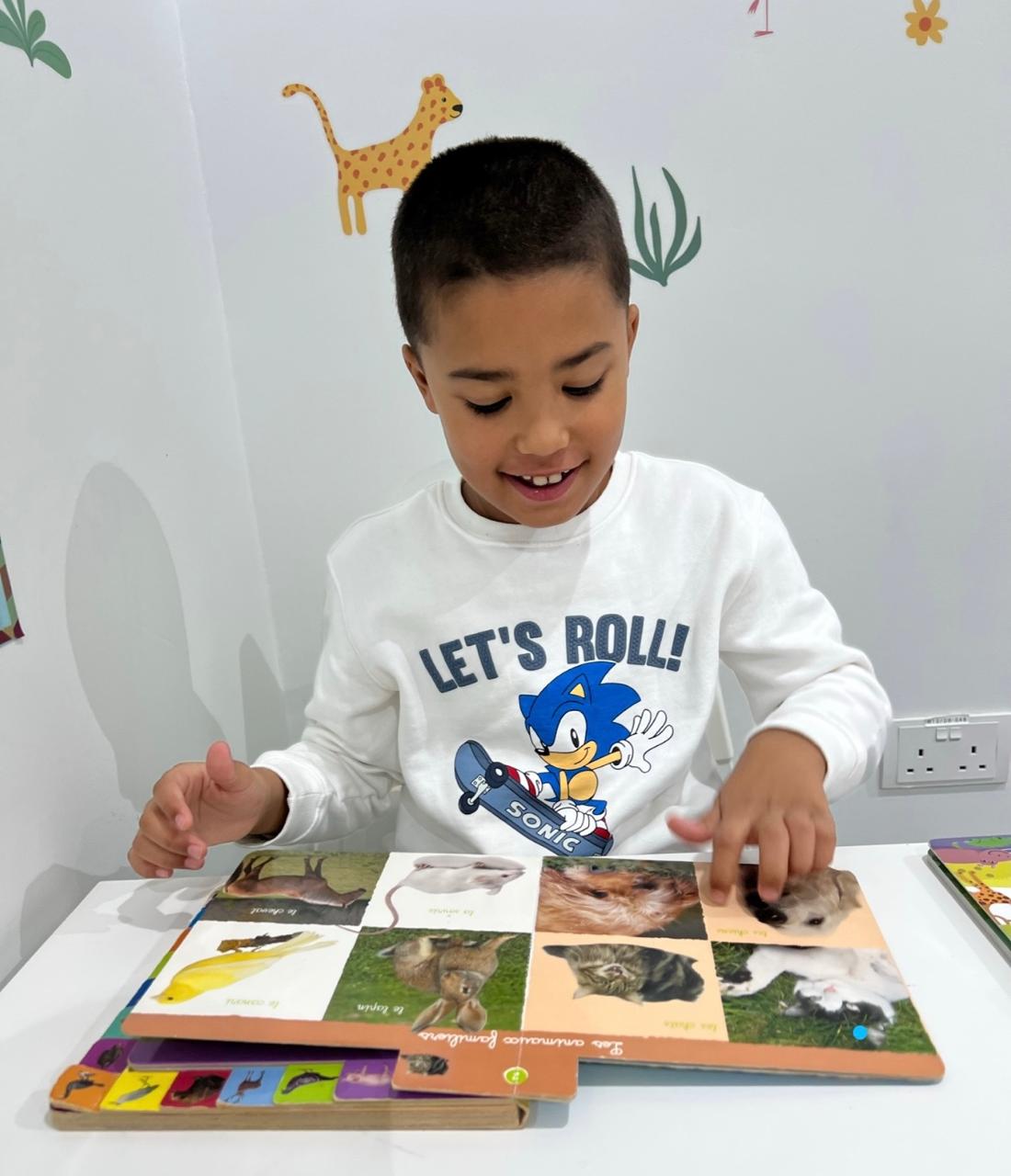When Lezel Cook reached the Everest Base Camp earlier this year, it wasn’t just a personal milestone, it was a heartfelt mission. As the mother of a neuro-divergent child, Lezel's journey up the world’s highest mountain symbolised something far greater than physical endurance. It was a powerful metaphor for the everyday battles faced by families raising children with autism.
Lezel's eight-year-old son, Xander, was diagnosed with Autism Spectrum Disorder (ASD) at the age of three. Lezel, a South African expat living in Dubai, recalls the day her world changed. “Xander was a very typical baby. Everything seemed fine until about 18 months. Then we saw the regression, as his words disappeared, his eye contact went away and he started to isolate himself from the family”.
Like many parents, Lezel and her husband, Dr. Craig Cook, CEO of The Brain and Performance Centre (BPC) in Dubai, were caught off-guard. “We had never encountered autism before. We didn’t know how or where to start. We had to take a minute to catch our breath and mourn the life we thought we would have with our son".

Recognising The Signs And Starting The Journey
As a stay-at-home mother, Lezel spent most of her time with Xander, and it was her who first recognised the signs of neuro-divergence. “Xander wasn’t sleeping and his speech slowly deteriorated, and I knew something wasn’t quite right. I pushed for us to get him tested”.
Diagnosis came later, around the age of three. But with it came confusion, uncertainty and the beginning of a long, transformative journey, one that would reshape the way Lezel saw the world and her role as a mother.
Facing Societal Perceptions
In the UAE, as in many parts of the world, the journey for parents of children with ASD is not just emotional, it is structural. “I wish the world understood how close this is to all of us. One in every ten children now is on the spectrum. That’s two kids in a classroom of twenty. And yet we act like it’s rare”, Lezel says.
Societal judgement often adds to the burden. “When a child with autism throws a tantrum in public, most people don’t see a child in distress. They see poor parenting, possibly not knowing that this child could be struggling or having a meltdown, and could be needing just a minute of silence, or just a minute away. So we have so much to learn as a society to create inclusivity for these kids with autism. So many parents of neuro-divergent children I know keep their children at home because they don’t want to face public judgement”.
For Lezel’s family, even securing a place at an inclusive school has been a challenge. “We interviewed at eight schools this year alone. The moment we mention that Xander uses a special device to speak as he's partially non-verbal, the schools who are otherwise inclusive admit that they don't have the facilities to help our child".
A Trek That Moved Mountains
In April, as part of Autism Awareness Month, BPC supported a trek to Everest Base Camp led by British adventurer Ant Middleton. The idea wasn’t just to conquer a physical peak, but to bring visibility to the emotional and logistical mountains families of children with ASD face every day.
Lezel, though not formally involved with BPC, joined the trek with full heart. “Craig has always known that I wanted to do something like this, something symbolic for autism awareness.”
And symbolic it was. “The trek was a physical, emotional, and mental roller-coaster. It was such a powerful metaphor for what we go through as parents. Every day is a new challenge. Every step, a reminder to keep going, not give up”.
Lezel recalls one moment of clarity, gasping for air at 3,000 metres altitude, thinking she couldn’t go on. “Then I’d tell myself, if my son has to fight his way through this world every day, then I can do this today. I can keep going, one breath and one step at a time”.

A Small Word, A Big Win
One of Lezel’s most moving stories from recent months wasn’t on a mountain but at home.
“When Xander was little, he called me ‘Mama’. Then he stopped. For years, I didn’t hear that word. But just last month, after a rough morning, he reached for me and said ‘Mama’ again. That moment...it was everything. Something so small was our biggest win”.
For Lezel, the trek to Everest was a metaphor for this kind of hope, the hope that with enough awareness, compassion and support, every child can find their voice again.

BPC in Dubai has played a crucial role in Xander’s progress. “They’ve been amazing. Not just in supporting Xander’s personalised treatment, but in asking how I am, how the family is. That kind of care makes a huge difference”, Lezel notes.
Centres like BPC offer therapies tailored to children with a wide range of neurological needs. But as Lezel points out, more support is still needed across the UAE.
“Therapies are expensive, and very few insurance providers cover them. More needs to be done to integrate therapy into school systems, because many parents are working and can’t fit therapy sessions into their schedules”.
A Call for Compassion and Change
One of the most powerful parts of Lezel’s message is about changing how society views the 'normal'.
“If we could just shift that idea of what ‘normal’ means, even slightly, it would make the world so much more inclusive. Yes, our children are different, but they shouldn’t be made to feel like they’re weird or unwelcome”.
For other parents walking a similar path, Lezel reassuringly says, “You’re not alone. Our journeys may look different, but we’re in the same boat. Find a good support team. Take care of yourself as you can’t pour from an empty cup”.
And to parents who suspect something might be different about their child? “Trust your instincts. Don’t be in denial. Early intervention made all the difference for us. If something doesn’t feel right, seek help early”, Lezel says.
Towards A New Normal
For Lezel and her family, the journey continues. With hopes of involving more families in future treks, and continuing to raise awareness, she remains a beacon of strength for others.
Lezel's final message to the world is simple. “Create a new normal. One where neuro-divergent children are embraced, supported and celebrated, not marginalised. One where we meet difference with compassion, not resistance or apathy”.
In a world that still has a long way to go, stories like Lezel’s shine a light on what’s possible when we climb together, one step, one breath, one child at a time.